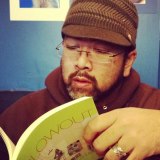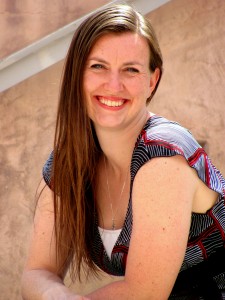A few weeks ago, I packed a suitcase with extra room for books and literary paraphernalia and boarded a plane for blustery Minneapolis. It was my first time in the city and my second time at the annual AWP Conference. (You can read all about my inaugural trip here.)
Attending AWP last year gave me such an incredible boost of enthusiasm and motivation. I went home with a backpack full of journals, business cards, and call-for-submissions fliers. I was ready to really commit to being a writer, and to my own happy surprise, I have submitted a few pieces to various literary journals – all without success. That’s why this year, I attended a few panels about how to cope with rejection!
This time, I not only entered the conference with a more personal knowledge of the reality of rejection but with a greater understanding of the madness I was descending on. As I boarded the plane to Seattle for the conference last year, I imagined the looks I would get when I told people that I hadn’t been published yet or that I was only getting my bachelor’s degree in literature. I expected everyone in attendance to have already written their first novel. Now I know that is wholly not the case.
Of course you do run into some profoundly successfully writers, and it’s such a joy to see them and hear them speak. (This year, I chatted with Ron Carlson and was able to attend panels with Stuart Dybek and T.C. Boyle.) But the AWP conference is also full of students and new writers who are trying to break into the world of literary publishing through small journals and publishing houses. It’s incredible to be in the company of thousands of aspiring and inspiring writers and editors. This year, walking into the book fair at the Minneapolis Convention Center felt just a little bit like coming home.
Here are some things I’ve learned from my first two AWP experiences:
Offsite events are the best. This year, Superstition Review co-hosted a reading with Blue Mesa Review and Hayden’s Ferry Review at The Nicollet, a lovely little coffee shop. I also attended Literary Death Match and a poetry reading in a supposedly haunted German hotel.
Missing the keynote is part of the AWP experience, especially after your first year. Admittedly, I was pretty disappointed to miss Karen Russell, but I was enjoying a really tasty bowl of pasta at the time, so I can’t complain too much.
It feels great to represent a magazine. Having Superstition Review printed on my badge did wonders for my confidence, and meeting past contributors as they stop by the table is pretty exciting. Plus, table 318 was my little haven in the swarming book fair.
Go outside. It’s easy to forget that there’s a world outside the convention center, so when you get a chance, go for a little walk; grab a bite to eat that isn’t a personal pizza or boxed salad.
The book fair is where it’s at. The panels are great, but there are so many people to talk with and new publications and presses to meet. Plus, you can get some amazing reading material and literary loot.
See you in Los Angeles at #AWP16!

